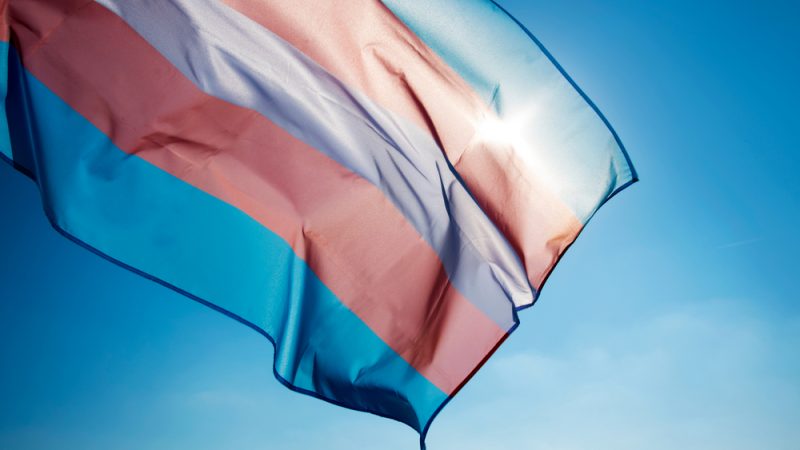DECEMBER 29, 2024
Guy Standing explains the background to the first of a series of meetings next year that aim to reintegrate an important idea into the left’s thinking.
Those who see themselves on the political left of the spectrum favour a reduction in inequalities, a strengthening of democracy and rising living standards for lower-income groups in society. Nothing controversial about that. It should be widely popular.
However, today, across the world, the left is in deep trouble, and must relearn an essential lesson of history. The left has flourished only when it offers an uplifting vision of a Good Society. In honesty, one has to admit that in the past the vision offered has turned out to be a false one or one that allowed dictatorial trends to overcome personal freedom.
However, without a vision, politics risks becoming at best a stepping stone occupation for self-advancing individuals to do for a few years before they take lucrative positions in other sectors. Today, we are in that situation, in which there is ‘think tank politics’ on the left, driven by a utilitarian mentality, focus groups and personal ambition. It will fail.
Currently, the Labour Party and Government is not offering a transformative vision, merely a short-term future of slightly higher GDP growth, which it hopes will yield modest rises in living standards for everybody. It is not being sectarian to say that this has a high probability of being a mirage, one doomed to offend the ecologically minded while preparing the ground for the far right to gain power. At the very least, that risk suggests there should be a parallel narrative and agenda, one to lift the spirits, escape from the current dourness and inspire those working for the cause.
I want to suggest that the core of a sensible Vision for all shades of the left today should be a revival of the commons and commoning. The commons may be described as all that belongs to all of us as commoners, as citizens in the proper sense of that word, as people who have a broadening range of human rights. The commons reflects and nurtures a culture of mutual support and generalised reciprocity, of social solidarity and informal social protection, or what some have called ‘the poor’s overcoat’.
They are intrinsically ecological, emphasising ‘the gift economy’ and values of reproduction, rather than accumulation and acquisitiveness. These are surely the values that unite all shades of the progressive left, and are what are sorely lacking in today’s financialised capitalism.
The commons have always been the bedrock of society, and commoning (that is, shared activities in the commons) have always been desired forms of activity by the world’s commoners. The commons, commoning and commoners have been at the heart of all progressive transformations throughout history. They are deeply ingrained in the human condition, giving people Robustness and Resilience, twin feelings in short supply at the moment.
All the great rebellions in British history have been about defending the commons and have been in response to the taking of them, beginning with the social strife that led to the Charter of the Forest and the Magna Carta in November 1217, and going on to the Peasants’ Revolt in 1381, Kett’s Rebellion in 1549, the Civil War in the seventeenth century, the Diggers and Levellers of 1649 whose activities culminated in the great Putney debates, the ‘blacking’ actions of the early 1720s (when commoners blackened their faces to conceal themselves when taking deer from enclosed land), which prompted the most savage legislation in British history, the Luddites of the early nineteenth century (ideologically misrepresented ever since), and the Chartists in the 1830s. All were about the defence of the commons and the radical emancipatory lifestyle that they have embodied.
Perhaps most durably, the commons as the fulcrum of progressive politics was lost in the defeat of William Morris’ Socialist League in the 1890s, this time not a defeat by capital plundering the commons, but by the twin juggernauts of communism and labourist social democracy, both of which pinned all their hopes and intellectual energy on eulogising the ‘state’ as the saviour of society, rescuing ‘the working class’ from industrial capitalism. In doing so, they both dismissed the commons, as quaint historical relics.
Throughout the twentieth century, the core of political struggle was between those who favoured state control, through such mechanisms as nationalisation and state ownership of ‘the means of production’, and those who believed in ‘free markets’. The commons ceased to figure in political discourse, reduced to little more than amenities for recreation. They disappeared as the locus for socio-political struggle.
It is time to escape from that simplistic dualism. We should develop an agenda around the commons and set up a series of discussions around the country to develop a strategy to revive all types of commons, one that should not be party-political or even factional in any sense.
The context could not be more urgent or dire. We are in a transformational crisis, and as Karl Polanyi put it that brings a “threat of annihilation of civilisation”. That is growing in 2025. We are entering the era of Trumpism, and what might be called a plutarchy, which is more threatening than the earlier version of populism associated with Peronism in Latin America.
Plutarchy is a society controlled by the extremely rich, the plutocracy. The plutocracy is a definable group, the plutarchy a definable political system. The libertarian right plutocracy, led by Elon Musk, Peter Theil, Charles Koch et al, have created the conditions for Trumpism and the plutarchy, and predictably the rest of the American plutocracy are lining up to show they now want to be an integral part of what that offers them.
They want to demolish what is left of the progressive side of democratic politics, and unless progressives offer a transformative alternative vision, we will be among the victims. Every person of whatever shade of left they might have should pin on their proverbial wall – the plutocracy does not do compromise. You are Little Red Ridinghood if you enter their den.
What is happening in America today could spill over this side of the Atlantic tomorrow. It is already doing so. The plutarchy is the outcome of rentier capitalism, which the left must understand and confront. There is nothing like a free market economy today. More and more of the income, wealth, status and power flows to the owners of private property (physical, financial and intellectual). Plundering what remains of the commons is an integral part of that process. Conventional policies to promote GDP growth only increase inequalities and economic insecurity, while increasing the devastation of our natural world.
Over the centuries, all forms of Commons (natural, civil, social, cultural and intellectual) have been plundered, and in much the same sequence – through encroachment, neglect, enclosure, privatisation, commodification and financialisation. But globally and in Britain, the plunder has been accelerated since the neoliberal economics revolution of the 1980s, under Thatcherism and above all in the austerity era.
This must be reversed. In an attempt to start a conversation between similarly minded activists and the politically minded, the conversational society Kairos is planning on organising a series of conversational meetings during the course of 2025 or different areas of the commons, starting with one on January 16th in Kairos’ conference rooms in Tottenham Court Road. The event is open to everyone who is interested, via registration.
The first meeting will outline the meaning and significance of the commons, drawing in part on the work of Elinor Ostrom, who won the Nobel Prize in economics in 2009, and on three recent books on different aspects of the commons. It will conclude with a focus on a sphere of commons that receives insufficient attention, the knowledge commons.
The principles and practices of the education commons were established in ancient Athens. Over the ages they have been shredded, first by religious and class-based bigotries and latterly by the neo-liberal emphasis on ‘human capital’ and the construction of a globalised education industry dominated by financial capital and by the plutocracy. It is scarcely an exaggeration to say that it has turned into an instrument for weakening progressive thinking. The tragedy of education de-commoning must be overcome if the plutarchy is to be overcome.
Depending on the development of commons conversations in Kairos and elsewhere over the coming months, one outcome might be the drafting of a modern Charter of the Commons that could form the basis for a public campaign. Meanwhile, let a thousand commons bloom.
Guy Standing is Professorial Research Associate, SOAS, University of London, and co-president of BIEN, the Basic Income Earth Network.
EVENT DETAILS
Thursday January 16th 2025
Doors open 6.30pm, Talk starts 7pm
Reviving the Commons: A Unifying Vision for Our Common Wealth with Guy Standing
Talk followed by supper at 8pm and discussion until 9.15pm
Kairos, 84 Tottenham Court Road, London W1T 4TG
Find out more and reserve a place.
Image: https://www.picpedia.org/highway-signs/v/vision.html License: Creative Commons 3 – CC BY-SA 3.0 Attribution: Alpha Stock Images – http://alphastockimages.com/ Original Author: Nick Youngson – link to – http://www.nyphotographic.com/ Original Image: https://www.picpedia.org/highway-signs/v/vision.html
















